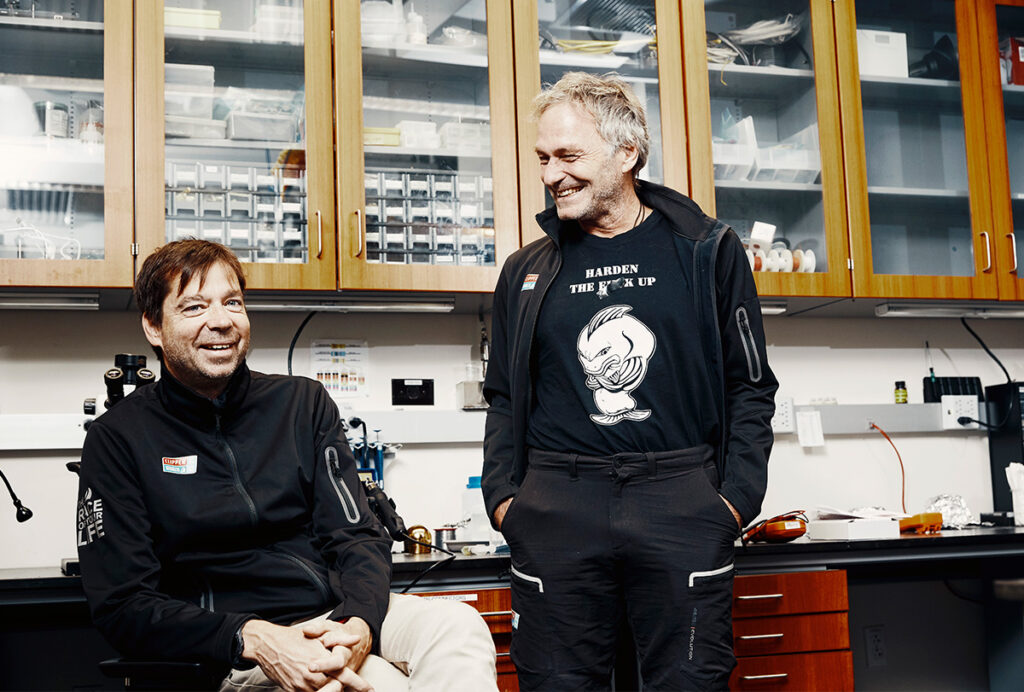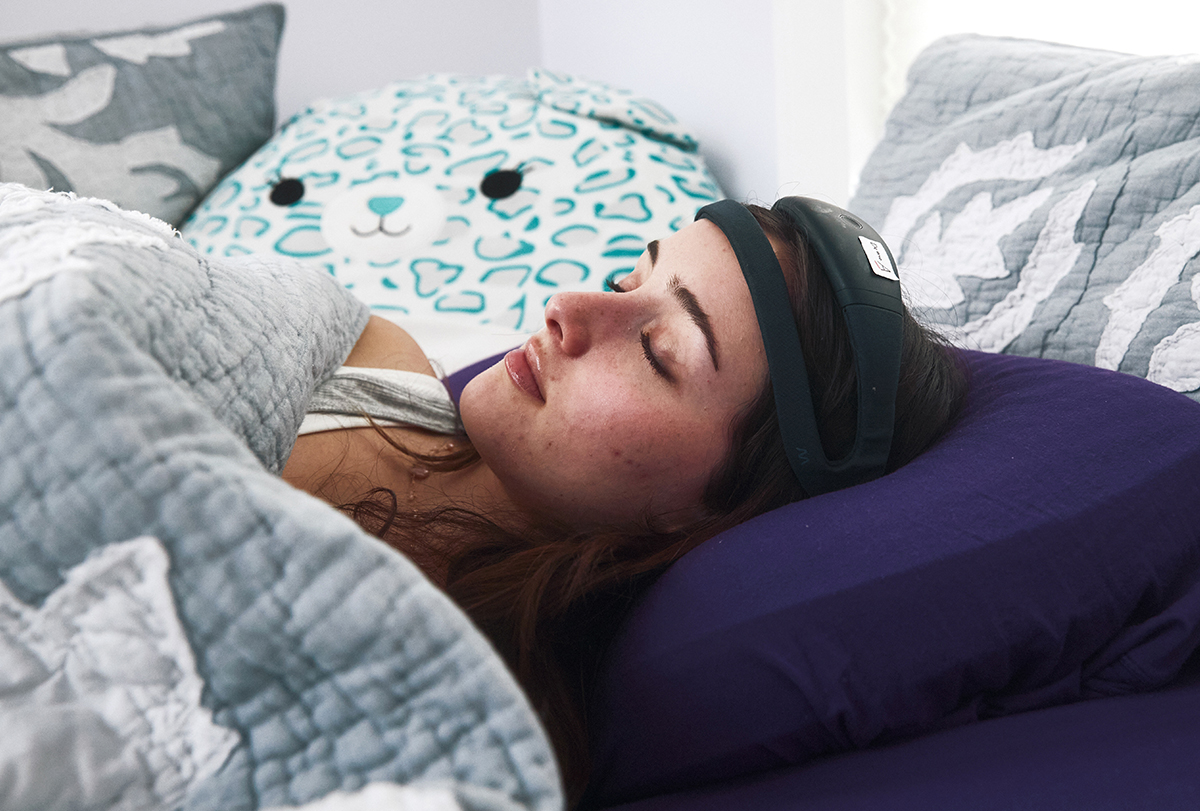Simon Simard
photographer
From this contributor
Improvising to study brains in the wild: Q&A with Nacho Sanguinetti-Scheck
A joke at a neuroscience summer program nearly a decade ago ignited a lifelong research interest for this Uruguayan scientist—one that plays on his comedic strengths.

Improvising to study brains in the wild: Q&A with Nacho Sanguinetti-Scheck
On the high seas with Florian Engert and Bence Ölveczky
The two neuroscientists leave this week to take on the most dangerous leg of the Clipper Round the World Yacht Race — sailing from South Africa to Australia through the fabled “Roaring Forties,” latitudes of the Southern Ocean known for their towering waves and prevailing gale-force westerlies.

On the high seas with Florian Engert and Bence Ölveczky
Capturing autism’s sleep problems with devices nearable and wearable
Next-generation trackers could realize a long-standing research dream: conducting sleep studies in large numbers of autistic people.

Capturing autism’s sleep problems with devices nearable and wearable
Explore more from The Transmitter
Frameshift: Raphe Bernier followed his heart out of academia, then made his way back again
After a clinical research career, an interlude at Apple and four months in early retirement, Raphe Bernier found joy in teaching.

Frameshift: Raphe Bernier followed his heart out of academia, then made his way back again
After a clinical research career, an interlude at Apple and four months in early retirement, Raphe Bernier found joy in teaching.
Organoid study reveals shared brain pathways across autism-linked variants
The genetic variants initially affect brain development in unique ways, but over time they converge on common molecular pathways.

Organoid study reveals shared brain pathways across autism-linked variants
The genetic variants initially affect brain development in unique ways, but over time they converge on common molecular pathways.
Single gene sways caregiving circuits, behavior in male mice
Brain levels of the agouti gene determine whether African striped mice are doting fathers—or infanticidal ones.

Single gene sways caregiving circuits, behavior in male mice
Brain levels of the agouti gene determine whether African striped mice are doting fathers—or infanticidal ones.